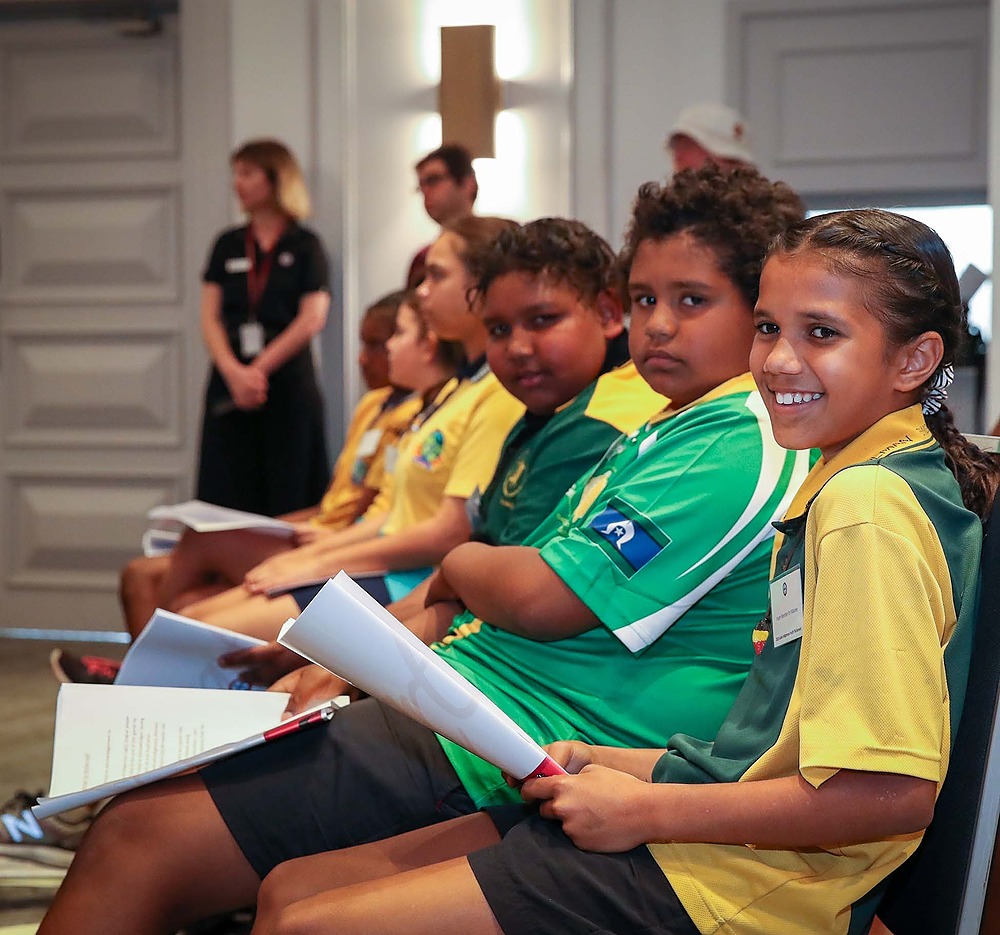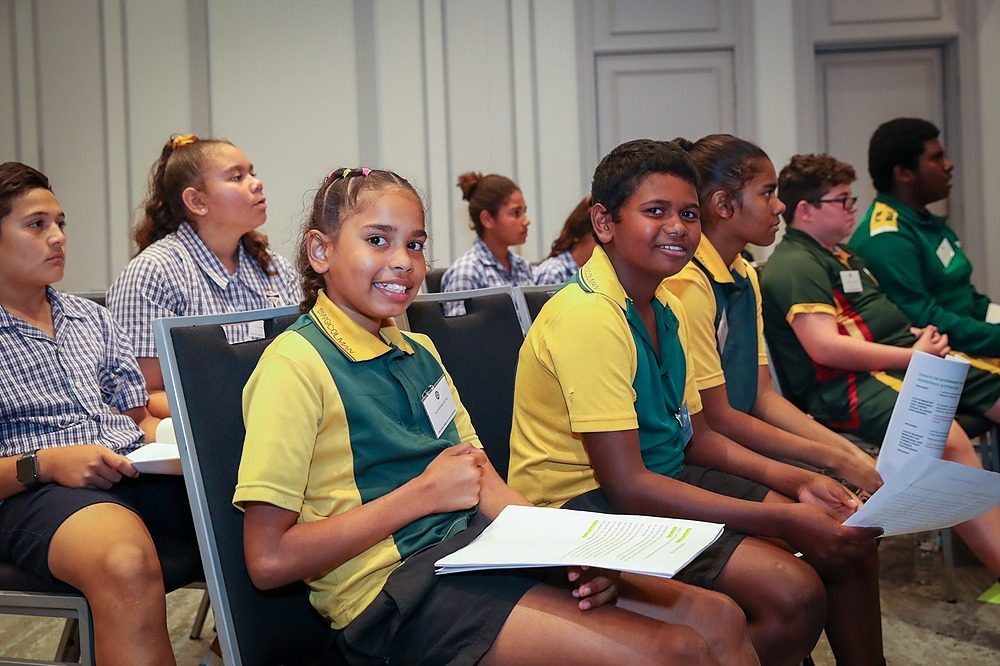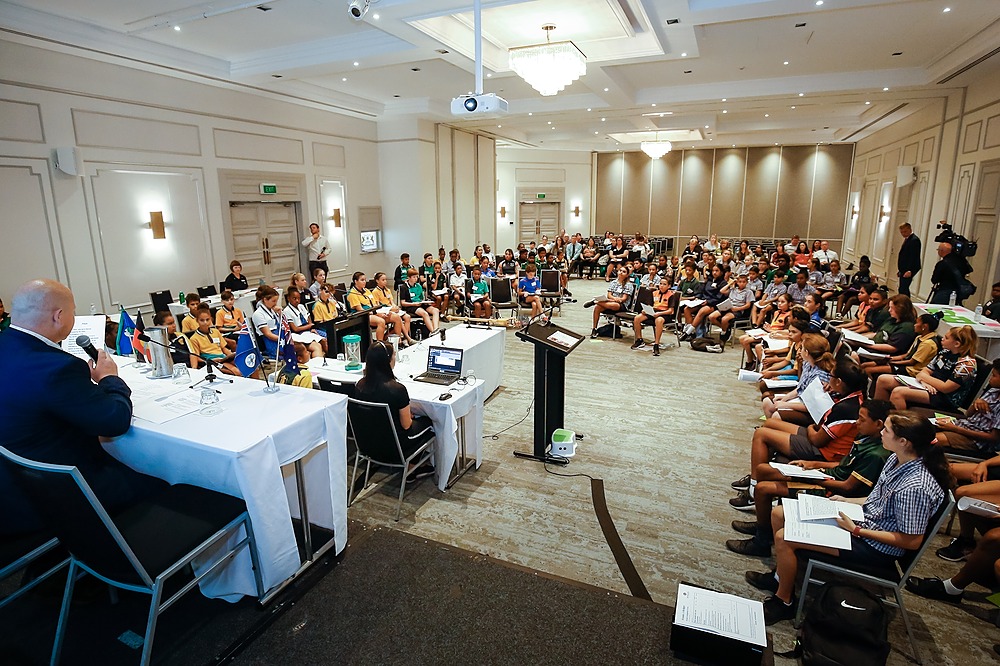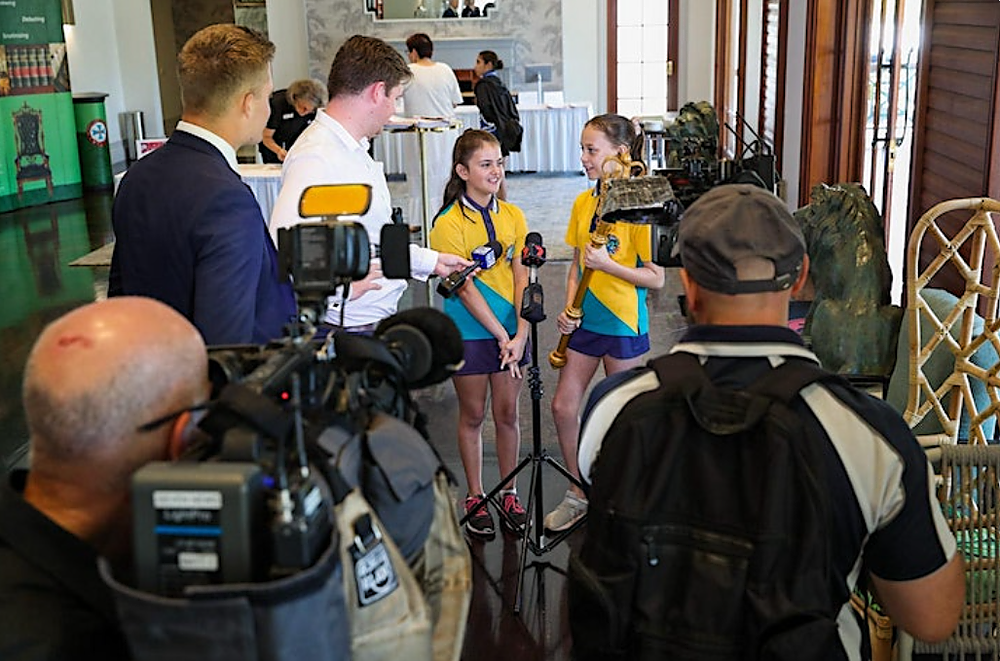2024 Junior Indigenous Youth Parliament (Townsville)
Event description
Are you ready for a true-to-life parliamentary experience for your primary school students?
You are invited to nominate up to 10 students from Years 5 and 6 to participate in the 2024 Junior Indigenous Youth Parliament.

The Youth Parliament is an exciting opportunity for students in the Townsville region to debate a motion on a youth issue or speak in an adjournment debate about any issue falling within the jurisdiction of the Queensland Parliament.
All primary schools in the following state electorates are eligible to nominate:
- Burdekin
- Mundingburra
- Thuringowa
- Hinchinbrook
- Townsville
The Youth Parliament is hosted by the Queensland Parliament and will be chaired by the Speaker, along with local Members of Parliament.
How many students can I nominate?
Schools are invited to nominate up to a maximum of 10 students from Years 5 and 6. The number of student participants allocated per school will depend on the number of schools that nominate for the Youth Parliament.

What is the commitment for students and teachers?
Teacher Briefing
An online briefing session for teachers will be held via Microsoft Teams. Teachers from participating schools must attend either ONE of two scheduled briefing sessions:
- 16 July 3:45 - 4:15 pm
- 18 July 7:30 - 8:00 am
At the briefing you will receive details of the program and information about operational and administrative matters. You will have the opportunity to ask questions and seek advice about preparing for the event.
Preparation
- Students will need to prepare a one-minute speech to present on the day.
Student Briefing
- Teachers and students should arrive by 9:00am on the day of the Youth Parliament, to be seated and ready for the start of the 9:30am student briefing.

Teacher information
Parents and caretakers will be required to complete a Photo Consent form. Please note that the media often attend Youth Parliament and students may be photographed or
filmed.

Australian Curriculum Links
- The responsibilities of electors and representatives in Australia’s democracy (ACHASSK145)
- The roles and responsibilities of Australia’s three levels of government (ACHASSK144)
- Examine different viewpoints on actions, events, issues and phenomena in the past and present (ACHASSI127)
- The key institutions of Australia’s democratic system of government and how it is based on the Westminster system (ACHASSK143)
- Present ideas, findings, viewpoints and conclusions in a range of texts and modes that incorporate source materials, digital and non-digital representations and discipline-specific terms and conventions (ACHASSI133)
- The key features of government under the Australian Constitution with a focus on: the separation of powers, the roles of the Executive, the houses of parliament and the division of powers (ACHASSK193)
- Present ideas, findings, viewpoints, explanations and conclusions in a range of texts and modes that incorporate source materials, citations, graphic representations and discipline-specific terms, conventions and concepts (ACHASSI163)
Tickets for good, not greed Humanitix dedicates 100% of profits from booking fees to charity


